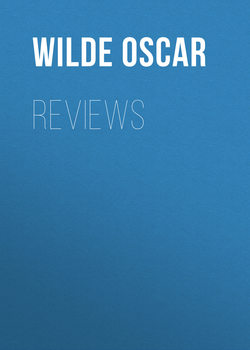Читать книгу Reviews - Оскар Уайльд, Wilde Oscar, F. H. Cornish - Страница 3
DINNERS AND DISHES
Оглавление(Pall Mall Gazette, March 7, 1885.)
A man can live for three days without bread, but no man can live for one day without poetry, was an aphorism of Baudelaire. You can live without pictures and music but you cannot live without eating, says the author of Dinners and Dishes; and this latter view is, no doubt, the more popular. Who, indeed, in these degenerate days would hesitate between an ode and an omelette, a sonnet and a salmis? Yet the position is not entirely Philistine; cookery is an art; are not its principles the subject of South Kensington lectures, and does not the Royal Academy give a banquet once a year? Besides, as the coming democracy will, no doubt, insist on feeding us all on penny dinners, it is well that the laws of cookery should be explained: for were the national meal burned, or badly seasoned, or served up with the wrong sauce a dreadful revolution might follow.
Under these circumstances we strongly recommend Dinners and Dishes to every one: it is brief and concise and makes no attempt at eloquence, which is extremely fortunate. For even on ortolans who could endure oratory? It also has the advantage of not being illustrated. The subject of a work of art has, of course, nothing to do with its beauty, but still there is always something depressing about the coloured lithograph of a leg of mutton.
As regards the author’s particular views, we entirely agree with him on the important question of macaroni. ‘Never,’ he says, ‘ask me to back a bill for a man who has given me a macaroni pudding.’ Macaroni is essentially a savoury dish and may be served with cheese or tomatoes but never with sugar and milk. There is also a useful description of how to cook risotto – a delightful dish too rarely seen in England; an excellent chapter on the different kinds of salads, which should be carefully studied by those many hostesses whose imaginations never pass beyond lettuce and beetroot; and actually a recipe for making Brussels sprouts eatable. The last is, of course, a masterpiece.
The real difficulty that we all have to face in life is not so much the science of cookery as the stupidity of cooks. And in this little handbook to practical Epicureanism the tyrant of the English kitchen is shown in her proper light. Her entire ignorance of herbs, her passion for extracts and essences, her total inability to make a soup which is anything more than a combination of pepper and gravy, her inveterate habit of sending up bread poultices with pheasants, – all these sins and many others are ruthlessly unmasked by the author. Ruthlessly and rightly. For the British cook is a foolish woman who should be turned for her iniquities into a pillar of salt which she never knows how to use.
But our author is not local merely. He has been in many lands; he has eaten back-hendl at Vienna and kulibatsch at St. Petersburg; he has had the courage to face the buffalo veal of Roumania and to dine with a German family at one o’clock; he has serious views on the right method of cooking those famous white truffles of Turin of which Alexandre Dumas was so fond; and, in the face of the Oriental Club, declares that Bombay curry is better than the curry of Bengal. In fact he seems to have had experience of almost every kind of meal except the ‘square meal’ of the Americans. This he should study at once; there is a great field for the philosophic epicure in the United States. Boston beans may be dismissed at once as delusions, but soft-shell crabs, terrapin, canvas-back ducks, blue fish and the pompono of New Orleans are all wonderful delicacies, particularly when one gets them at Delmonico’s. Indeed, the two most remarkable bits of scenery in the States are undoubtedly Delmonico’s and the Yosemité Valley; and the former place has done more to promote a good feeling between England and America than anything else has in this century.
We hope the ‘Wanderer’ will go there soon and add a chapter to Dinners and Dishes, and that his book will have in England the influence it deserves. There are twenty ways of cooking a potato and three hundred and sixty-five ways of cooking an egg, yet the British cook, up to the present moment, knows only three methods of sending up either one or the other.
Dinners and Dishes. By ‘Wanderer.’ (Simpkin and Marshall.)
